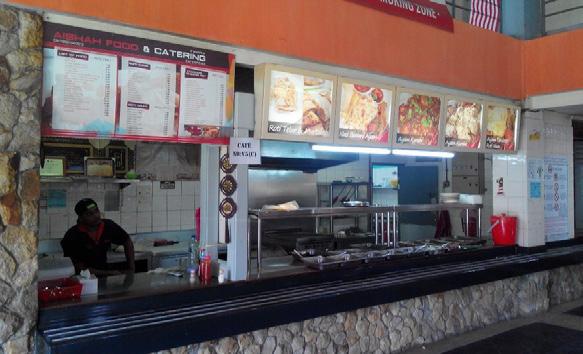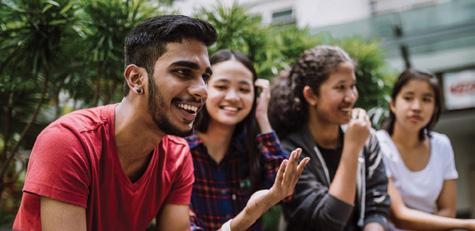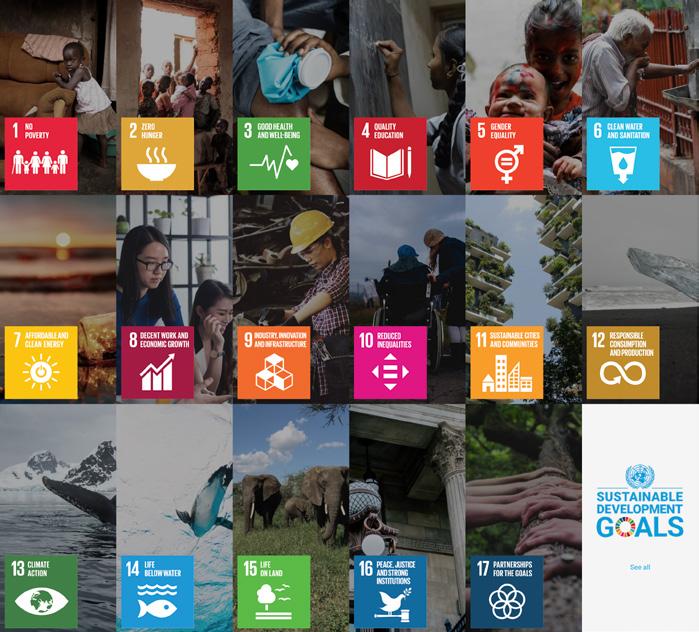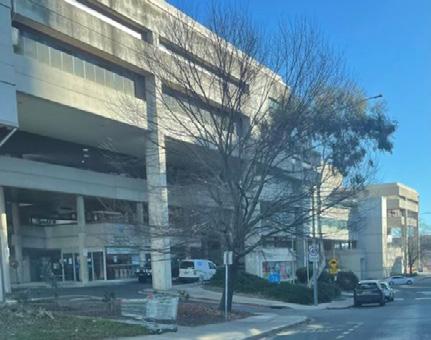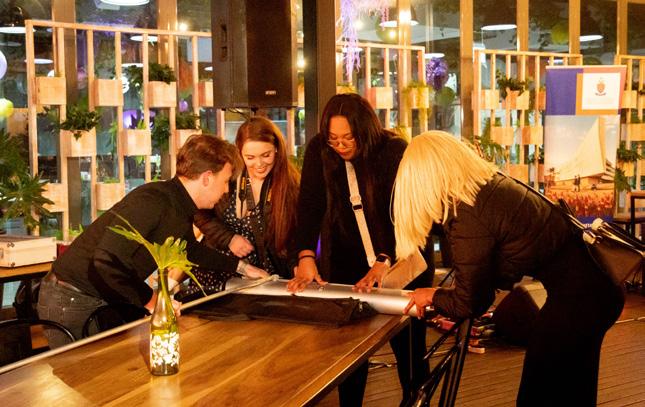
3 minute read
Students making small contributions on environmental projects often set the example for the rest of us
Dr Areti Metuamate St John’s College, University of Queensland
Recently, I attended a panel discussion on campus with some young Pasifika climate change activists talking about the impact of climate change in the
Advertisement
Pacific Islands. As a Pacific Islander
I have always been mindful of how evident it is that many Pacific
Island communities are already being negatively affected and how severe the future risks are if things keep going they way they have been. I was inspired by these young leaders and their passion for addressing what is surely the biggest threat facing humanity today. At the social event after the panel discussion, I was talking with a colleague from another student residence and he said to me that the young leaders on the panel reminded him that many of the young people we work with every day in our residences will play key roles in solving the climate crisis. I agreed with him, and then we started to talk about different environmental initiatives we’ve seen in student residences. Something one of the panellists said was relevant here, “Lots of people doing small things adds up to really big things”, because while there are some students in our residences who will work directly in the climate change space, many if not most won’t. Instead, they will contribute in other ways by doing small things in their day-to-day work and personal lives. Things like ensuring energy efficiency in the home, planting trees, offsetting air travel, using public transport or buying an electric car, and recycling.
At St John’s College in Brisbane, like many student residences across the country, our students established a Recycling Committee, or ‘ReCo’,


At St John’s College in Brisbane, like many student residences across the country, our students established a Recycling Committee, or ‘ReCo’, focussed on ensuring that anything that is recyclable is recycled.

focussed on ensuring that anything that is recyclable is recycled. The ReCo team have set up blue bins across the College specifically for cans and bottles and each week they are responsible for collecting them and ensuring they are empty and not contaminated with other rubbish. The entire College community embraces this and you’ll often see people go out of their way to find a blue bin to drop a bottle or can in. The ReCo also works with the College catering team to get all of their empties.
The bags of bottles and cans are then taken by the ReCo to a Containers for Change1 depot and they get 10c for every container they have collected. These students know that they are not only doing something to address what is one of Queensland’s worst rubbish problems (three billion beverage containers are used by Queenslanders each year, the second most littered item), and making a small step to addressing the climate crisis, they are also able to make quite a bit of money in the process (often up to $100 per week) which they can then use to make even more of an impact by donating it to a relevant environmental charity, or using it to support the work of the ReCo.
One of the ReCo members said to me recently that he realises recycling bottles and cans in this way is a “pretty basic thing” to do, but it’s precisely because it’s simple that everyone in the College is able to engage. “We use this small step to then start a bigger conversation about why recycling is important and how we can put the money we make from Containers for Change to good use”.
References 1 https://www.qld.gov.au/environment/ management/waste/recovery/reduction/ container-refund/container-refund-about
This article is in relation to the following Sustainable Development Goals (SDGs):



